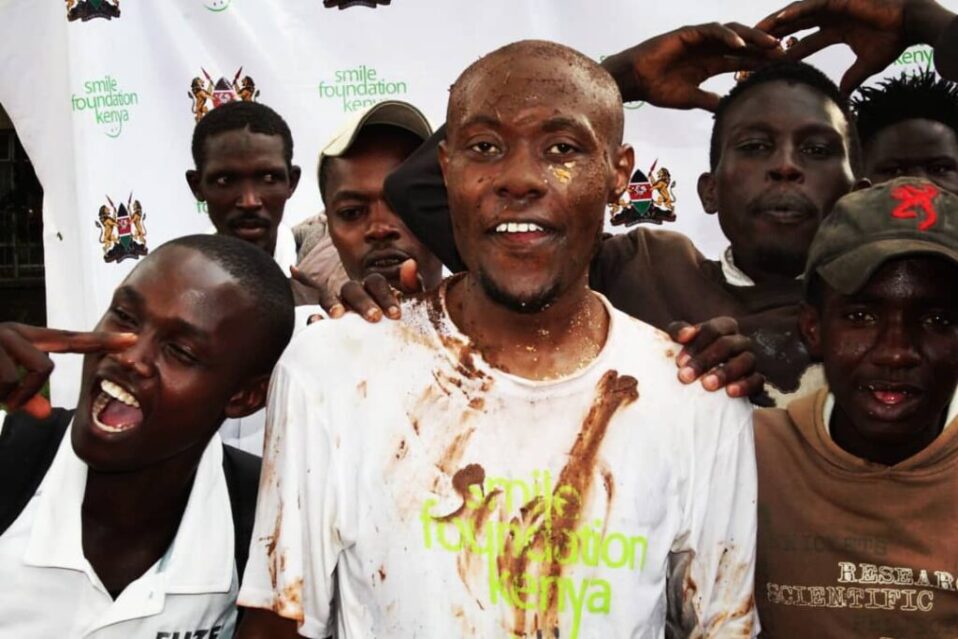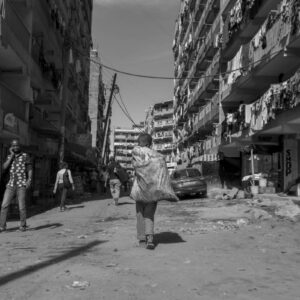It’s September 2014 and with a reinvigorated sense of purpose Bradley gets back to work with the Riverside children.
He wanted to start by addressing these de-humanising perceptions of street children. His plan was to run a community event which facilitated informal interactions between street children and members of the local community in which they were located. Through these interactions, he hoped that the members of the community who typically had a disdain for the street children would see them in a new light. This key first step of changing the lens of perception to one of sympathy would hopefully open people up to showing an increased willingness to help.
Events consisted of inviting street children along with volunteers and members of the community to an event hall or outdoor space. At the event, street children are fed, washed and given donated clothes. They are also provided with a haircuts and can also be seen to by doctors via a pop-up medical camp. All with the collective help of the community.
The events are also a celebration for street children to showcase their talents – singers, acrobats, rappers and poets get to take to the stage.
-
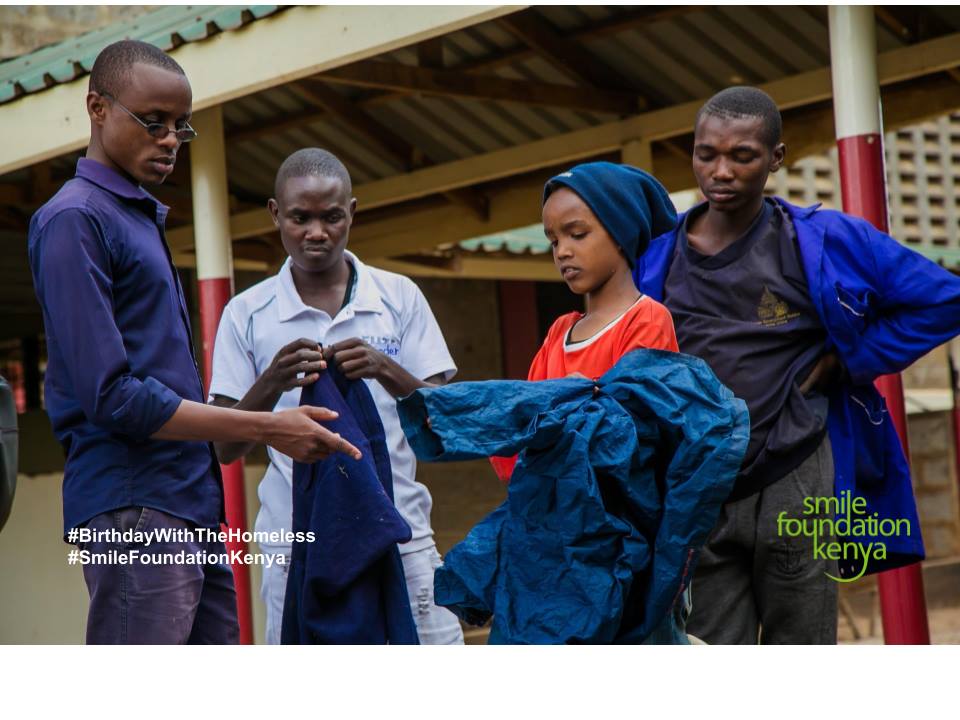
A street child tries on new clothing -

Volunteers and street children sort through donated clothing -

Medical camp -
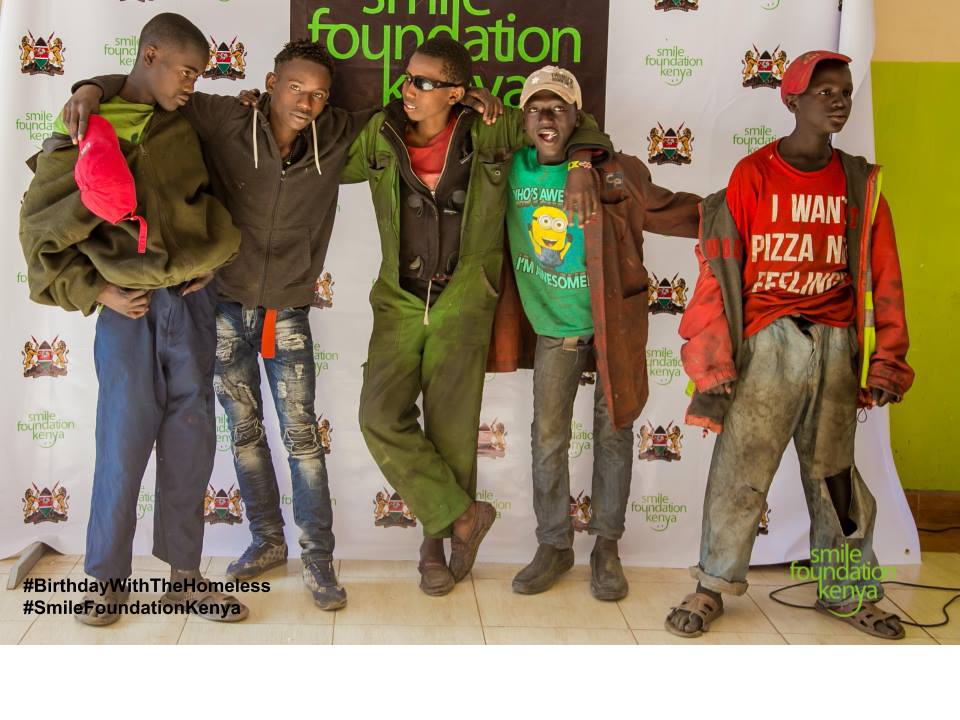
Street children pose on stage -
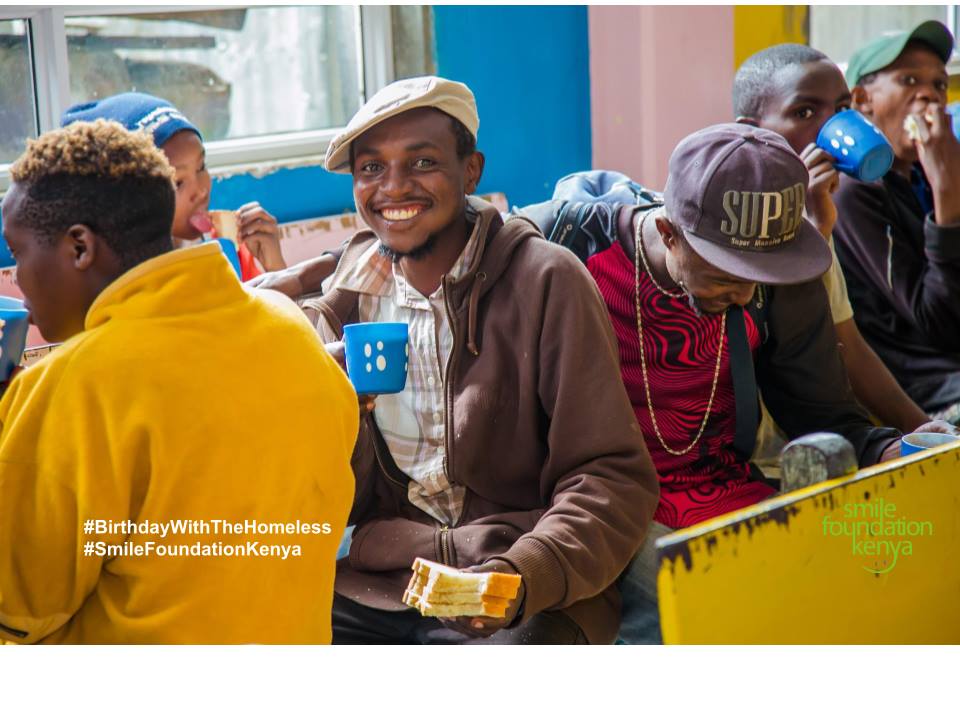
A young man enjoys porridge
Bradley held seven events in 2014, the largest of which was attended by 200 street children. The events have continued to grow, and through them people’s perceptions of street children have changed. Street children need to be seen as just that – children like any others. Children with potential and a future, and not as a threat to society. Alongside the community events, children are taught to reciprocate these values by caring for the community through activities such as tree planting.
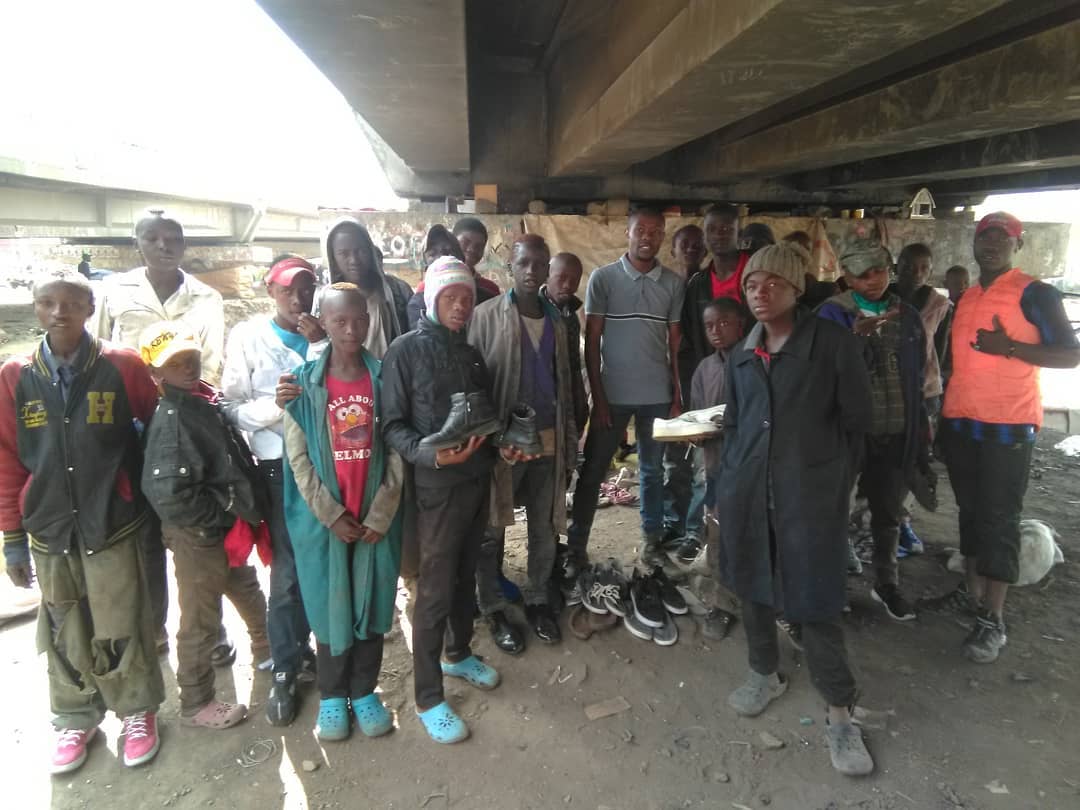
The Riverside kids have since moved on to rearing and selling wildstock as their business, whilst still staying engaged with programs ran by Smile Foundation. Kware is much safer, and many of the boys who survived street life have moved away from crime into legitimate ways of making money – however the issue of substance abuse still exists.
Ambitions for Smile Foundation Kenya
Bradley is focusing the efforts of Smile Foundation around three core areas;
Healthcare
For most street children, healthcare is completely inaccessible. Hospitals turn them away as they do not have the money to pay for treatment. This means an ailment as simple as a cut can go unaddressed, leading to more severe consequences such as infection. Usually the only way street children obtain medical attention at hospitals is if 15-20 people go to rally and protest for their treatment. Healthcare needs a sustainable and effective solution.
Education
Most street children do not want to attend school. Their long time absence from the education system means that re-entering a school would result in them being placed in a classroom alongside children of a much younger age. Many street children aged 16 would find themselves in a class made up of 6 year olds – naturally this presents a barrier for them wanting to partake even if given the opportunity.
To address this, alternative education programs are being experimented with which do not follow the traditional format. Teaching street children about citizenship, health education, survival skills, basic language and numeracy. These skills can help them as they transition to legitimate work opportunities.
To keep street children interested in attending an education program and not defaulting to street life, programs also involve playing sports and free meals. The end goal would be to reunite children with their parents and so far Smile Foundation have seen some success stories.
At the same time, extracting children from street life in the long run is a very difficult thing to achieve. Many of the children are accustomed to sleeping outside at night, working for their food and having to resist bullies and abusers every single day. As a result they are battle hardened, and have built a degree of mental toughness which is hard to change. Transforming their judgements and feelings so that they can be successfully reintegrated into life with children of the same age in mainstream society is no easy task.
Rehabilitation and the community
It take a village to raise a child
A well known African proverb
Street children have a higher chances of changing their lives for the better with the assistance of collective community effort. The community is in a position to deliver the sympathy and connection the children need so desperately. Efforts being made by the likes of Smile Foundation can multiplied with the will and action of the community.
Rehabilitation for substance abuse for one individual can cost a minimum of 100,000 shillings (around £775) and take up to 3 months. Therein lies a hurdle which is hard to get over.
Forming a foundational cushion of care and compassion for street children is needed as a basis to build additional specialist support structures. Rehabilitation for substance abuse, reintegration into society via education and the value of a family unit are the pillars which uphold success stories.

Bradley is now exploring the potential to officially register street groups as self help groups. This will enable them to engage in business and open them up to support programs from further afield.
The enormity of the scale and complexity of the problems faced by street children in sub-saharan Africa is daunting. But like any problem, it can only be addressed if it has the attention of resources and the drive of enough people who want to see through change.
Article By: Shammi Raichura


